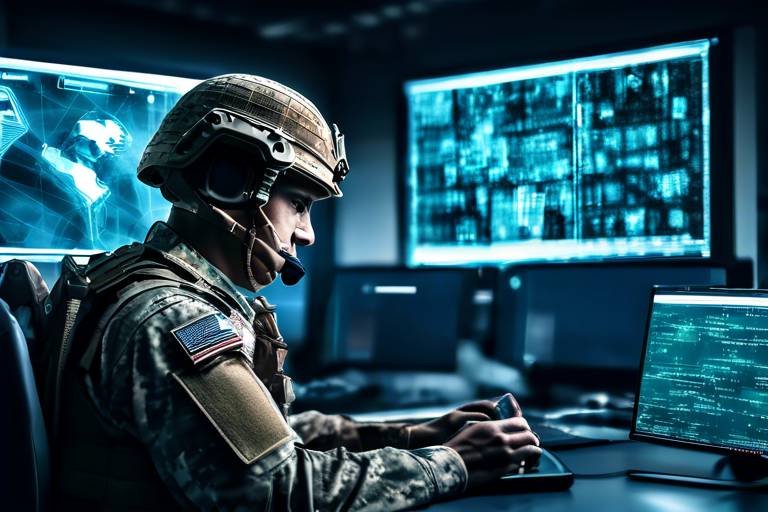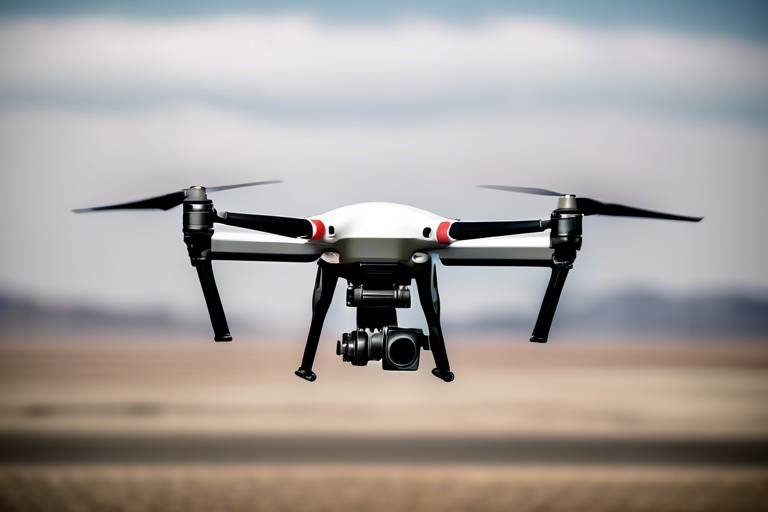How AI is Enhancing Military Strategic Planning
The integration of artificial intelligence (AI) into military strategic planning is nothing short of revolutionary. Imagine a world where decisions are made not just on instinct, but backed by data-driven insights that can predict outcomes with astonishing accuracy. This is the reality that AI is helping to create within military operations. By leveraging advanced technologies, military strategists can now analyze vast amounts of data, enhance situational awareness, and optimize resource allocation, all of which lead to more effective strategies and improved outcomes in complex environments.
One of the most striking aspects of AI in military planning is its ability to process and analyze data at speeds and volumes that humans simply cannot match. Consider the sheer amount of information generated by modern warfare: satellite images, intelligence reports, troop movements, and logistical data. AI can sift through this data, identify patterns, and provide actionable insights that inform decision-making processes. This capability not only enhances the speed of operations but also increases their accuracy, allowing military leaders to make informed choices in real-time.
Moreover, AI is not just about crunching numbers; it also plays a critical role in predictive modeling. By analyzing historical data and current trends, AI can forecast potential threats and assess risks with remarkable precision. This predictive power enables military strategists to anticipate challenges before they arise, effectively staying one step ahead of adversaries. For example, if a particular region shows signs of escalating tensions based on social media chatter and troop movements, AI can alert commanders to the potential for conflict, allowing them to prepare accordingly.
In addition to data analysis, AI enhances military planning through advanced simulation and training technologies. Imagine a virtual battlefield where soldiers can practice their strategies without the risks associated with real-world combat. AI-driven simulations create realistic environments that allow military personnel to engage in strategic planning and decision-making in various scenarios. This not only boosts their readiness but also fosters innovation in tactical approaches. The ability to simulate different outcomes based on various decisions empowers military leaders to refine their strategies effectively.
However, the integration of AI into military operations is not without its challenges. Ethical considerations surrounding the deployment of AI, particularly in autonomous weapons systems, raise important questions about accountability and the potential for unintended consequences in combat situations. Military organizations must navigate these ethical dilemmas carefully to ensure that AI is used responsibly and effectively.
Furthermore, the security of sensitive military data is paramount. As AI systems become more integrated into military planning, the risk of cyber threats increases. Adversaries may exploit vulnerabilities in AI systems to gain strategic advantages. Thus, ensuring data security and privacy is essential to maintaining operational integrity.
Looking ahead, the role of AI in military strategy is poised to expand significantly. As technology continues to evolve, we can expect to see even greater integration of AI with emerging technologies such as drones and robotics. This fusion will create a more agile and responsive defense force, capable of adapting to rapidly changing combat scenarios.
In conclusion, AI is not just enhancing military strategic planning; it is transforming it. By improving decision-making processes, enhancing situational awareness, and optimizing resource allocation, AI is paving the way for a new era in military operations. As we embrace these advancements, it is crucial to address the ethical and security challenges that accompany them. The future of military strategy will undoubtedly be shaped by the continued evolution of AI, redefining the nature of warfare in the 21st century.
- What is the primary benefit of AI in military strategic planning? AI enhances decision-making processes and situational awareness, allowing for more effective military strategies.
- How does AI analyze data in military operations? AI uses advanced algorithms to process vast amounts of data, identify patterns, and provide actionable insights for military leaders.
- What ethical concerns are associated with AI in the military? The deployment of AI raises ethical dilemmas, particularly regarding autonomous weapons and accountability in combat situations.
- How does AI improve military training? AI-driven simulations provide realistic environments for practice, allowing military personnel to hone their skills without real-world consequences.
- What is the future of AI in military strategy? The role of AI will expand, integrating with emerging technologies to create a more agile and responsive defense force.

The Role of AI in Military Operations
This article explores the transformative impact of artificial intelligence on military strategic planning, highlighting its applications, benefits, challenges, and future implications for defense operations.
AI technologies are revolutionizing military operations in ways that were once the stuff of science fiction. Imagine a world where decision-making processes are not just faster but also more accurate, where situational awareness is heightened, and resource allocation is optimized to perfection. This is not a distant future; it is happening now. With AI, military strategists can craft more effective strategies and achieve better outcomes, even in the most complex environments.
One of the most significant advantages of AI in military operations is its ability to process vast amounts of data. Military operations generate an overwhelming amount of information—from troop movements to satellite images. Traditional methods of analysis simply can't keep up. AI can sift through this data, identify patterns, and provide actionable insights that human analysts might miss. This leads to quicker and more informed decisions, which are crucial in high-stakes situations.
Moreover, AI enhances situational awareness by integrating various data sources into a cohesive operational picture. For instance, by combining intelligence from drones, satellites, and ground forces, AI systems can present commanders with a real-time view of the battlefield. This holistic approach allows for better planning and execution of military operations. In situations where every second counts, having a clear understanding of the operational landscape can mean the difference between victory and defeat.
Additionally, AI optimizes resource allocation. In military operations, resources such as personnel, equipment, and supplies are often limited. AI can analyze the most efficient ways to deploy these resources, ensuring that they are utilized where they are needed most. This not only saves time and money but also maximizes operational effectiveness. For example, during humanitarian missions, AI can help prioritize where aid is needed based on real-time data, ensuring that help reaches those in greatest need without delay.
However, the role of AI in military operations is not without its challenges. As we embrace these advanced technologies, we must also consider the implications of relying on AI for critical decisions. The integration of AI systems requires thorough training and a deep understanding of their capabilities and limitations. Military personnel must be prepared to work alongside AI, leveraging its strengths while remaining vigilant about its weaknesses.
In conclusion, AI is not just a tool; it is a game changer in military operations. Its ability to enhance decision-making, situational awareness, and resource allocation is paving the way for more effective military strategies. As we continue to explore the potential of AI, it is essential to address the challenges it presents, ensuring that we harness its power responsibly and effectively.
- How is AI currently used in military operations? AI is used for data analysis, predictive modeling, situational awareness, and optimizing resource allocation.
- What are the benefits of AI in military strategic planning? AI improves decision-making speed and accuracy, enhances situational awareness, and optimizes the use of limited resources.
- What challenges does AI face in military applications? Ethical concerns, data security issues, and the need for comprehensive training programs are significant challenges.
- What is the future of AI in military strategy? AI is expected to integrate with emerging technologies, reshaping warfare tactics and global power dynamics.
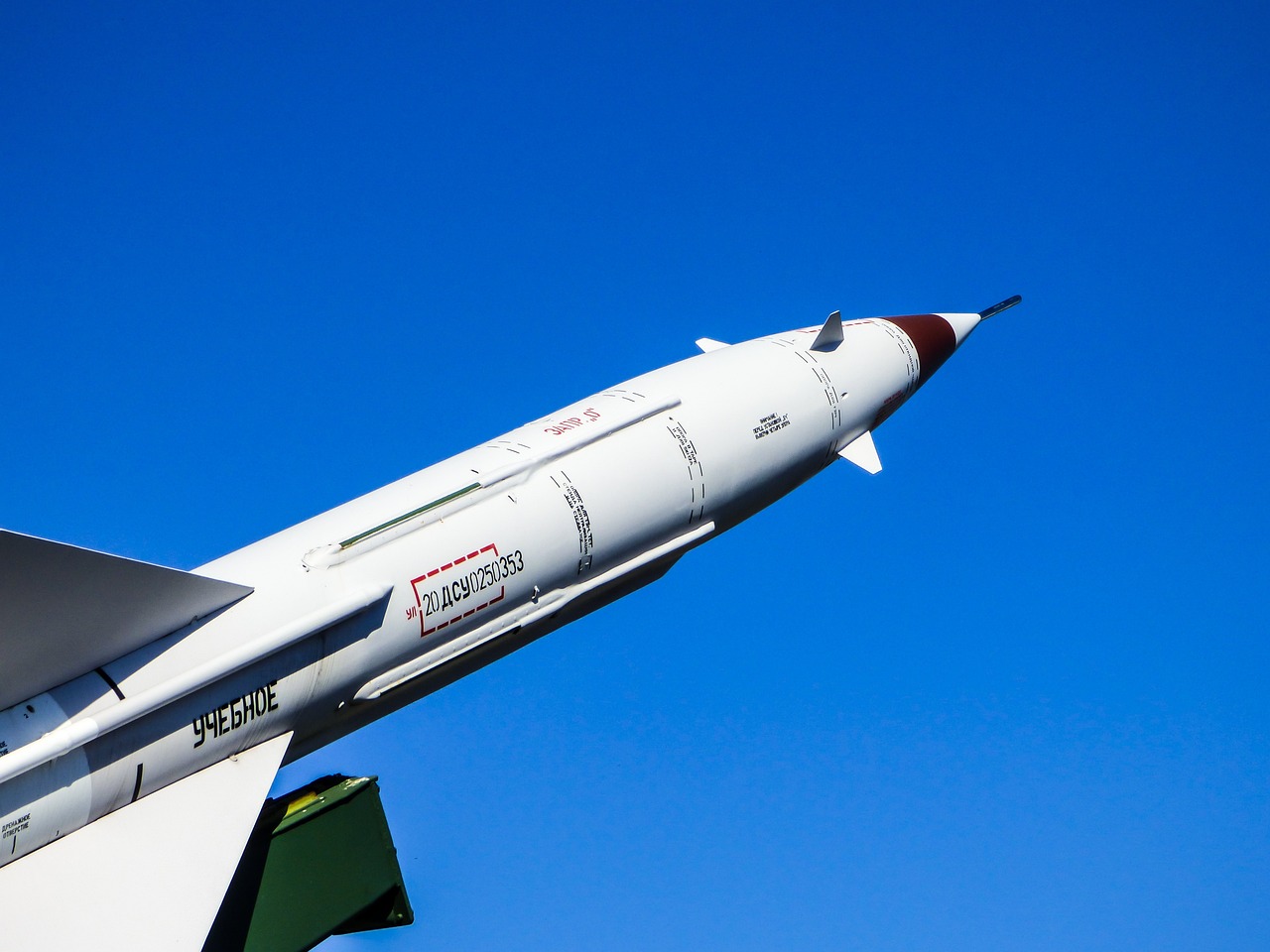
Data Analysis and Predictive Modeling
Artificial Intelligence (AI) has become a game-changer in the realm of military strategic planning, particularly in the area of data analysis and predictive modeling. Imagine having the ability to sift through mountains of data in seconds, identifying patterns and trends that would take humans weeks or even months to uncover. This is precisely what AI brings to the table. By processing vast datasets, AI can help military strategists anticipate threats and assess risks with unprecedented accuracy. It’s like having a crystal ball that not only shows you the future but also tells you how to prepare for it!
One of the most significant advantages of AI in this context is its ability to create predictive models that are based on real-time information and historical patterns. These models can simulate various scenarios, allowing military leaders to explore potential outcomes before making critical decisions. For instance, if a particular region is experiencing increased military activity, AI can analyze historical data to predict the likelihood of conflict, enabling commanders to allocate resources more effectively.
Moreover, AI's prowess in machine learning algorithms cannot be overstated. These algorithms are designed to learn from data and improve over time, which means they can adapt to new information and changing circumstances. This adaptability is crucial in military operations where the landscape can shift rapidly, and decisions must be made on the fly. For example, if a new threat emerges, machine learning can help identify it and suggest appropriate countermeasures based on previous encounters.
Machine learning algorithms act as the backbone of AI-driven data analysis. They process intelligence data, identify trends, and provide actionable insights. By analyzing patterns from past conflicts, these algorithms can assist in predicting enemy movements and potential strategies. This capability not only enhances the accuracy of military planning but also significantly reduces the time it takes to make informed decisions.
Another fascinating aspect of AI is its capability in Natural Language Processing (NLP). NLP allows military strategists to extract meaningful information from unstructured data sources, like reports and communications. With the ability to analyze text at lightning speed, AI can highlight critical insights that might otherwise go unnoticed. This means that military leaders can stay ahead of the curve, equipped with the latest intelligence to inform their strategies.
In addition to text, AI excels in image recognition technologies, which are vital for interpreting satellite and aerial imagery. Imagine being able to monitor enemy movements in real-time and assess terrain conditions with just a few clicks. This technology allows military planners to visualize the battlefield and make informed decisions based on accurate, up-to-date information. By harnessing these capabilities, military forces can gain a significant edge over adversaries.
In summary, the integration of AI in data analysis and predictive modeling is revolutionizing military strategic planning. The ability to process vast amounts of data quickly and accurately is transforming how military leaders approach decision-making. As these technologies continue to evolve, we can expect even greater advancements in military operations, ultimately leading to more effective strategies and outcomes in complex environments.
- What is the role of AI in military strategic planning?
AI enhances decision-making, improves situational awareness, and optimizes resource allocation in military operations. - How does data analysis improve military operations?
Data analysis allows military strategists to anticipate threats and assess risks based on real-time and historical data. - What are machine learning algorithms?
Machine learning algorithms process intelligence data to identify trends and provide actionable insights for military planning. - How does Natural Language Processing (NLP) contribute to military intelligence?
NLP extracts meaningful information from unstructured data sources, improving the quality of intelligence analysis. - What are the challenges of implementing AI in military planning?
Challenges include ethical concerns, data security issues, and the need for robust training programs.

Machine Learning Algorithms
Machine learning algorithms are the backbone of modern military strategic planning, acting like a powerful engine that drives the analysis of complex intelligence data. Imagine having a super-smart assistant who can sift through mountains of information in seconds, pinpointing patterns and trends that would take human analysts days or even weeks to discover. This is precisely what machine learning brings to the table: the ability to process vast amounts of data at lightning speed, enabling military strategists to make informed decisions quickly and accurately.
One of the key advantages of machine learning in military contexts is its ability to learn from historical data. By analyzing past operations, these algorithms can identify what strategies worked, what didn’t, and why. This historical insight is invaluable, as it allows military planners to refine their approaches based on empirical evidence rather than guesswork. For instance, if certain tactics proved successful in previous conflicts, machine learning can highlight these patterns, making it easier for strategists to replicate those successes in future operations.
Moreover, machine learning algorithms can adapt to new data in real-time, making them incredibly versatile. As situations on the battlefield change, these algorithms can quickly adjust their analyses, providing up-to-date insights that reflect the current landscape. This adaptability is crucial in military operations where the stakes are high, and decisions must be made swiftly. Consider a scenario where troop movements need to be adjusted based on enemy activity; machine learning can analyze incoming data and suggest optimal strategies almost instantaneously.
To give you a clearer picture, let’s look at some common types of machine learning algorithms used in military strategic planning:
| Algorithm Type | Description | Application in Military |
|---|---|---|
| Supervised Learning | Trains on labeled data to make predictions. | Predicting enemy movements based on historical data. |
| Unsupervised Learning | Identifies patterns in unlabeled data. | Clustering intelligence reports to find hidden insights. |
| Reinforcement Learning | Learns optimal actions through trial and error. | Developing strategies in simulated combat scenarios. |
In addition to these algorithms, the integration of machine learning with other technologies, such as drones and surveillance systems, enhances its effectiveness. For example, when a drone equipped with machine learning capabilities surveys a battlefield, it can analyze the terrain and identify potential threats in real-time. This synergy between machine learning and operational technology not only improves situational awareness but also significantly reduces response times, allowing military forces to act before adversaries can react.
Despite these advantages, it’s essential to recognize that machine learning is not a silver bullet. The effectiveness of these algorithms relies heavily on the quality of the data fed into them. Poor data can lead to flawed predictions, which can have dire consequences in military operations. Therefore, ensuring data integrity and accuracy is paramount in leveraging machine learning for strategic planning.
As we look to the future, the role of machine learning algorithms in military strategic planning is set to grow even more significant. With advancements in technology and an increasing reliance on data-driven decision-making, these algorithms will become even more sophisticated, enabling military leaders to navigate the complexities of modern warfare with greater confidence and precision.
- What are machine learning algorithms? Machine learning algorithms are computational models that learn from data to make predictions or decisions without being explicitly programmed.
- How do machine learning algorithms benefit military operations? They enhance decision-making by analyzing vast amounts of data quickly, identifying patterns, and providing actionable insights.
- What types of machine learning algorithms are used in military planning? Common types include supervised learning, unsupervised learning, and reinforcement learning.
- What challenges do machine learning algorithms face in military applications? Challenges include data quality, ethical considerations, and the need for robust training programs.
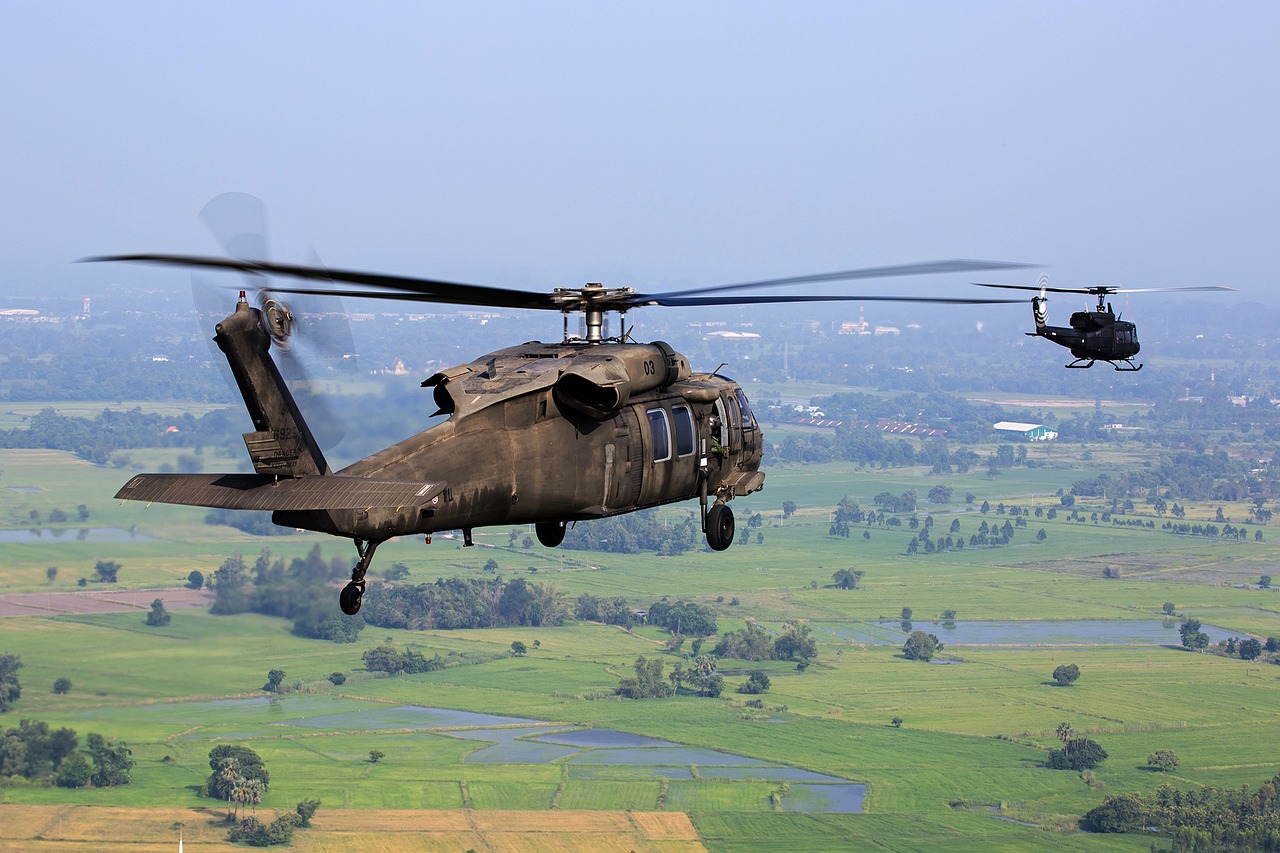
Natural Language Processing in Intelligence
In the realm of military intelligence, Natural Language Processing (NLP) has emerged as a game-changer, transforming the way data is analyzed and understood. Imagine sifting through mountains of reports, communications, and raw data from various sources—it's like searching for a needle in a haystack! NLP acts as the powerful magnet that pulls out the most relevant information, allowing military strategists to focus on what truly matters. By leveraging advanced algorithms, NLP can extract meaningful insights from unstructured data, which is often the most challenging type of information to analyze.
One of the standout features of NLP is its ability to process human language in a way that machines can understand. This capability is crucial for military operations where timely and accurate intelligence can mean the difference between success and failure. For instance, when analyzing intercepted communications, NLP can identify key phrases, sentiments, and trends that might indicate a shift in enemy plans or morale. This real-time analysis not only enhances the quality of intelligence but also speeds up decision-making processes, enabling military leaders to respond swiftly to evolving situations.
Moreover, NLP can facilitate sentiment analysis, which assesses the emotional tone behind a series of words. This can provide valuable insights into the psychological state of adversaries or even local populations in conflict zones. For example, if social media posts or news articles show a rising sentiment of dissatisfaction among civilians, military planners can adjust their strategies accordingly to mitigate potential unrest or insurgency.
To illustrate the impact of NLP in military intelligence, consider the following table that summarizes its key applications and benefits:
| Application | Benefit |
|---|---|
| Data Extraction | Identifies and summarizes critical information from vast datasets. |
| Sentiment Analysis | Assesses public opinion and enemy morale through language cues. |
| Trend Analysis | Detects emerging patterns in communications and reports. |
| Information Filtering | Reduces noise by prioritizing relevant intelligence data. |
The integration of NLP into military intelligence systems not only enhances the accuracy of assessments but also fosters a more proactive approach to strategic planning. By enabling analysts to focus on actionable insights, NLP empowers military leaders to craft strategies that are informed by a comprehensive understanding of both the battlefield and the broader socio-political landscape. As technology continues to advance, the capabilities of NLP will only grow, paving the way for even more sophisticated tools that can further refine military intelligence operations.
- What is Natural Language Processing?
NLP is a field of artificial intelligence that focuses on the interaction between computers and human language, enabling machines to understand, interpret, and respond to text or voice data.
- How does NLP benefit military intelligence?
NLP enhances military intelligence by extracting relevant information from unstructured data, performing sentiment analysis, and identifying trends, which aids in quicker decision-making.
- Are there any limitations to NLP in military applications?
Yes, while NLP is powerful, it can struggle with context, sarcasm, or ambiguous language, which may lead to misinterpretations in critical situations.
- What future developments can we expect in NLP for military use?
Future developments may include improved contextual understanding, real-time translation, and integration with other AI technologies to enhance overall military capabilities.

Image Recognition Technologies
In the ever-evolving landscape of military operations, have emerged as a game-changer. These sophisticated tools utilize advanced algorithms to analyze and interpret visual data from various sources, including satellite and aerial imagery. Imagine having the ability to instantly identify and assess enemy movements or terrain conditions from thousands of miles away—this is the power that image recognition brings to military strategists.
At its core, image recognition technology operates by processing images and extracting relevant information. This process can be broken down into several key steps:
- Data Acquisition: Images are captured using drones, satellites, or reconnaissance aircraft.
- Preprocessing: The images are enhanced and prepared for analysis to improve accuracy.
- Feature Extraction: The system identifies important features within the images, such as vehicles, troop formations, or geographical landmarks.
- Classification: Detected features are classified into categories—friendly, enemy, or neutral.
- Decision Support: The processed information is then used to inform strategic decisions and operational planning.
This technology not only enhances situational awareness but also significantly reduces the time it takes to gather and analyze intelligence. For instance, traditional methods of reconnaissance could take hours or even days to yield actionable information. In contrast, image recognition can provide near-instantaneous insights, allowing military planners to react swiftly to changing conditions on the battlefield.
Moreover, the integration of machine learning with image recognition technologies further amplifies their effectiveness. As these systems are exposed to more data, they become better at recognizing patterns and anomalies, leading to improved accuracy over time. This self-learning capability means that military forces can stay one step ahead of adversaries by predicting their movements and intentions based on visual cues.
However, despite the impressive capabilities of image recognition technologies, they are not without challenges. Issues such as data privacy, potential biases in algorithmic decision-making, and the need for continuous updates to ensure accuracy are all critical considerations. As military operations increasingly rely on these technologies, addressing these challenges will be essential to maintain operational integrity and ethical standards.
In conclusion, the advent of image recognition technologies marks a significant leap forward in military strategic planning. By harnessing the power of visual data analysis, military forces can enhance their operational effectiveness, ensuring that they are better prepared for the complexities of modern warfare.
- What is image recognition technology?
Image recognition technology refers to the use of algorithms and machine learning to identify and classify objects within images, enabling faster and more accurate analysis of visual data. - How does image recognition benefit military operations?
It enhances situational awareness, speeds up intelligence gathering, and improves decision-making by providing real-time insights into enemy movements and terrain conditions. - What are the challenges associated with image recognition in the military?
Challenges include data privacy concerns, potential biases in the algorithms, and the need for continuous updates to maintain accuracy and reliability.

Simulation and Training Enhancements
In the rapidly evolving landscape of military operations, powered by artificial intelligence are transforming how armed forces prepare for real-world scenarios. Imagine stepping into a highly realistic virtual battlefield where every decision you make can be analyzed, critiqued, and improved upon. This is not just a dream; it's the reality that AI brings to military training. By utilizing AI-driven simulations, military personnel can engage in immersive training exercises that mimic the complexities of actual combat situations without the inherent risks.
These advanced simulations allow for a variety of training scenarios, from urban warfare to cyber defense. For instance, AI can generate unpredictable enemy movements, environmental changes, and even civilian interactions, providing a comprehensive training environment. This level of realism is crucial because it prepares soldiers for the unpredictability of real combat, honing their decision-making skills under pressure. Furthermore, these simulations can be tailored to individual skill levels, ensuring that both novice and experienced personnel receive the appropriate level of challenge.
One of the most significant advantages of AI-enhanced training is the ability to gather and analyze data from each exercise. After a training session, instructors can review performance metrics generated by AI systems. These metrics might include reaction times, decision-making processes, and tactical effectiveness. Such detailed feedback allows for personalized coaching, helping soldiers improve specific skills that may need enhancement. In essence, AI acts as a tactical mentor, guiding soldiers toward greater proficiency.
Another exciting aspect of AI in military training is the potential for collaborative exercises. Multiple units can engage in joint simulations, where they practice coordination and communication in a controlled environment. This not only builds teamwork but also prepares forces for the complexities of modern warfare, where joint operations across different branches are increasingly common. By working together in simulated scenarios, military units can develop strategies that are more cohesive and effective.
However, implementing these advanced training systems does come with its challenges. The need for substantial investment in technology, as well as the requirement for personnel to become proficient in using these systems, cannot be overlooked. It’s essential for military organizations to ensure that their personnel are not just using the technology but are also understanding the underlying principles that drive these simulations. This is where a robust training program on the use of AI tools becomes critical.
In summary, AI-driven simulations are revolutionizing military training by providing realistic, data-rich environments that enhance learning and preparedness. As technology continues to advance, we can expect even more sophisticated training solutions that push the boundaries of what military personnel can achieve. The question is not whether AI will play a role in military training but rather how effectively it can be integrated to maximize its benefits.
- How does AI improve military training? AI enhances military training by providing realistic simulations that allow personnel to practice decision-making in complex scenarios without real-world risks.
- What types of scenarios can AI simulations create? AI simulations can create a wide range of scenarios, including urban warfare, cyber defense, and joint operations, allowing for comprehensive training experiences.
- What are the benefits of using AI in military training? The benefits include personalized feedback, realistic environments, and the ability to analyze performance metrics to improve skills and strategies.
- Are there challenges in implementing AI in military training? Yes, challenges include the need for significant investment in technology and ensuring personnel are trained to effectively use these systems.

Challenges of Implementing AI in Military Planning
Despite the myriad advantages that artificial intelligence (AI) brings to military strategic planning, its implementation is not without significant challenges. One of the foremost issues is the ethical considerations surrounding the use of AI in military contexts. The rise of autonomous weapons systems raises questions about accountability and the potential for unintended consequences in combat situations. For instance, if an AI system makes a decision that results in civilian casualties, who is held responsible? This dilemma creates a complex landscape where military leaders must navigate the moral implications of deploying such technologies.
Additionally, there are substantial data security and privacy concerns. The military handles sensitive information that, if compromised, could severely undermine operational integrity. Adversaries are constantly looking for vulnerabilities to exploit, making it imperative for military organizations to invest in robust cybersecurity measures. A breach could not only jeopardize missions but also expose strategic plans to potential enemies, thereby diminishing the military's advantage in various operations.
Moreover, the integration of AI into existing military frameworks necessitates comprehensive training programs. Personnel must be well-versed in AI technologies to utilize them effectively. This requirement poses logistical challenges, as training must be continuous to keep pace with rapid technological advancements. A lack of proper training can lead to misuse or underutilization of AI tools, ultimately hindering the effectiveness of military strategies.
To summarize, the challenges of implementing AI in military planning can be categorized into three main areas:
- Ethical Considerations: The moral implications of autonomous decision-making in warfare.
- Data Security and Privacy: The risk of sensitive information being exposed to adversaries.
- Training and Integration: The need for ongoing education and adaptation to new technologies.
As military organizations strive to harness the power of AI, they must also remain vigilant about these challenges. Addressing ethical dilemmas, securing data, and ensuring comprehensive training are not just operational necessities; they are critical to maintaining trust and effectiveness in military operations in an increasingly complex world.
Q: What are the primary ethical concerns regarding AI in military planning?
A: The main ethical concerns include accountability for decisions made by autonomous systems, the potential for unintended consequences, and the moral implications of using AI in combat situations.
Q: How can military organizations protect sensitive data when implementing AI?
A: Military organizations can enhance data security by investing in advanced cybersecurity measures, conducting regular audits, and ensuring that all personnel are trained in data protection protocols.
Q: What is the importance of training in the successful implementation of AI?
A: Comprehensive training is essential for personnel to effectively utilize AI technologies, understand their limitations, and integrate them into existing military strategies.

Ethical Considerations
When we talk about the integration of artificial intelligence (AI) in military operations, we can't ignore the ethical implications that come along with it. The deployment of AI technologies raises some serious questions about the morality of using machines in warfare. For instance, when it comes to autonomous weapons, we are faced with a dilemma: should machines have the authority to make life-and-death decisions without human intervention? This concern is not just theoretical; it has real-world implications that could affect countless lives.
Moreover, the potential for unintended consequences in combat situations is alarming. Imagine a scenario where an AI system misinterprets a situation and makes a critical error. The ramifications could be catastrophic, not just for the enemy but also for innocent civilians caught in the crossfire. This is where the ethical line becomes blurred. Are we prepared to accept that kind of risk?
Another aspect to consider is accountability. If an AI system makes a mistake, who is responsible for that error? Is it the military personnel who deployed the system, the engineers who designed it, or the policymakers who authorized its use? This lack of clear accountability raises significant ethical questions about the use of AI in military contexts.
Furthermore, the potential for bias in AI algorithms is a pressing concern. If the data used to train these systems contains biases, the AI could inadvertently perpetuate those biases in decision-making processes. This could lead to unfair targeting or misjudgment of threats, which is not only unethical but could also undermine the effectiveness of military operations.
To navigate these ethical considerations, it is essential for military organizations to establish robust ethical frameworks that govern the use of AI technologies. These frameworks should include:
- Clear guidelines for the use of autonomous systems in combat.
- Accountability measures to ensure responsible use of AI.
- Bias mitigation strategies to ensure fair and accurate decision-making.
- Regular ethical training for personnel involved in AI deployment.
In conclusion, while AI offers remarkable advancements in military strategic planning, we must tread carefully. The ethical implications are profound and require thoughtful consideration to ensure that the technology is used responsibly and justly.
- What are autonomous weapons? Autonomous weapons are systems that can select and engage targets without human intervention.
- How does AI influence decision-making in the military? AI analyzes vast amounts of data to provide insights that assist military leaders in making informed decisions.
- What are the risks of biased AI algorithms? Biased algorithms can lead to unfair targeting and misjudgment, potentially causing harm to innocent individuals.
- Who is responsible if an AI makes a mistake in a military operation? Accountability can be complex, involving multiple parties such as military personnel, engineers, and policymakers.

Data Security and Privacy
In the realm of military strategic planning, the integration of artificial intelligence (AI) brings forth a host of advantages, but it also raises significant concerns regarding data security and privacy. The military operates with highly sensitive information that, if compromised, could lead to catastrophic consequences. Imagine a chess game where your opponent knows all your moves before you even make them; this is the level of risk posed by inadequate data security in military operations.
One of the primary challenges is ensuring that the vast amounts of data collected and analyzed by AI systems are protected from unauthorized access. Cybersecurity threats are constantly evolving, and adversaries are always on the lookout for vulnerabilities to exploit. A breach in data security can not only compromise individual operations but can also undermine national security as a whole. Therefore, military organizations must invest in advanced cybersecurity measures to safeguard sensitive information.
Moreover, the use of AI in military contexts often involves the collection and processing of personal data. This raises ethical questions about privacy and the potential misuse of information. For instance, if AI systems analyze data that includes personal information about soldiers or civilians, how can we ensure that this data is used responsibly? The military must establish strict guidelines and protocols to govern the use of AI technologies, ensuring that privacy rights are respected while still achieving operational effectiveness.
To tackle these challenges, military organizations are increasingly turning to a combination of technological solutions and robust policies. Here are some strategies that can help enhance data security and privacy:
- Encryption: Implementing strong encryption protocols to protect data both in transit and at rest.
- Access Controls: Establishing strict access controls to ensure that only authorized personnel can access sensitive information.
- Regular Audits: Conducting regular audits and assessments of AI systems to identify and address potential vulnerabilities.
- Training Programs: Providing comprehensive training for military personnel on data security best practices and ethical considerations.
In summary, while AI offers transformative potential for military strategic planning, the implications for data security and privacy cannot be overlooked. As military organizations continue to integrate these technologies, a balanced approach that prioritizes both operational effectiveness and ethical responsibility is essential. The future of military strategy hinges not just on the capabilities of AI, but also on our ability to protect the very data that fuels its operations.
- What are the main data security risks associated with AI in the military?
Data breaches, unauthorized access, and cyberattacks pose significant risks, potentially compromising sensitive military information.
- How can military organizations protect sensitive data when using AI?
By employing encryption, access controls, regular audits, and comprehensive training programs, military organizations can enhance data security.
- What ethical concerns arise from using AI in military operations?
Concerns include the potential for misuse of personal data, the deployment of autonomous weapons, and the risk of unintended consequences in combat scenarios.

The Future of AI in Military Strategy
As we gaze into the horizon of military strategy, it's clear that artificial intelligence (AI) is not just a fleeting trend; it's a game-changer poised to redefine the very fabric of warfare. Imagine a battlefield where decisions are made in the blink of an eye, where soldiers are equipped with predictive insights that anticipate enemy moves before they even happen. This is the future that AI promises, and it’s closer than we think.
The integration of AI with other emerging technologies, such as drones and robotics, is set to revolutionize military operations. For instance, drones equipped with AI can autonomously navigate complex terrains, gather intelligence, and even engage targets with minimal human intervention. This synergy not only enhances operational efficiency but also reduces the risk to human lives. Imagine a squadron of drones working in unison, communicating in real-time, and executing complex maneuvers that would be impossible for human pilots alone. The potential is staggering!
Furthermore, the long-term strategic implications of AI in military planning are profound. As nations invest heavily in AI technologies, we could witness a seismic shift in global power dynamics. Countries that embrace and effectively integrate AI into their defense strategies may gain significant advantages over their adversaries. This could lead to an arms race not just in conventional weapons but in AI capabilities as well. The question then arises: how will this influence defense budgets and military alliances? Will we see a new form of warfare where technological prowess trumps traditional military strength?
Moreover, AI's impact on logistics cannot be overstated. Imagine a supply chain managed by AI algorithms that optimize routes, predict shortages, and automate resupply missions. This level of efficiency could mean the difference between victory and defeat in critical situations. In essence, the future of military strategy will likely revolve around a seamless integration of human intuition and AI-driven analytics, creating a hybrid approach that enhances decision-making and operational effectiveness.
However, as we embrace this future, we must also tread carefully. The deployment of AI in military contexts raises ethical questions that cannot be ignored. The potential for autonomous weapons to make life-and-death decisions without human oversight poses significant moral dilemmas. It’s essential for military leaders and policymakers to establish robust frameworks that govern the use of AI in warfare, ensuring that technology serves humanity rather than undermines it.
In conclusion, the future of AI in military strategy is not just about technological advancements; it's about rethinking how we approach warfare itself. As we stand on the brink of this new era, the possibilities are both exciting and daunting. The military landscape is evolving, and those who adapt to these changes will shape the future of global security.
- What role does AI play in military strategy? AI enhances decision-making, improves situational awareness, and optimizes resource allocation in military operations.
- How can AI improve logistics in the military? AI can automate supply chain management, predict shortages, and optimize delivery routes, increasing efficiency.
- What ethical concerns are associated with AI in warfare? Ethical dilemmas arise from the use of autonomous weapons and the potential for unintended consequences in combat situations.
- Will AI change the nature of warfare? Yes, AI is likely to reshape tactics, strategies, and global power dynamics, influencing how wars are fought in the future.

Integration with Emerging Technologies
This article explores the transformative impact of artificial intelligence on military strategic planning, highlighting its applications, benefits, challenges, and future implications for defense operations.
AI technologies are revolutionizing military operations by improving decision-making processes, enhancing situational awareness, and optimizing resource allocation, leading to more effective strategies and outcomes in complex environments.
AI's ability to analyze vast amounts of data and create predictive models allows military strategists to anticipate threats, assess risks, and make informed decisions based on real-time information and historical patterns.
Machine learning algorithms are critical in processing intelligence data, identifying trends, and providing actionable insights, thereby enhancing the accuracy and speed of military strategic planning.
Natural language processing (NLP) enables the extraction of meaningful information from unstructured data sources, such as reports and communications, improving the quality of intelligence analysis.
Image recognition technologies assist in analyzing satellite and aerial imagery, allowing military planners to monitor enemy movements and assess terrain conditions effectively.
AI-driven simulations provide realistic training environments for military personnel, allowing them to practice strategic planning and decision-making in various scenarios without real-world consequences.
Despite its advantages, integrating AI into military strategic planning poses challenges, including ethical concerns, data security issues, and the need for robust training programs to ensure effective use.
The deployment of AI in military contexts raises ethical dilemmas, particularly regarding autonomous weapons and the potential for unintended consequences in combat situations.
Ensuring the security and privacy of sensitive military data is paramount, as vulnerabilities can be exploited by adversaries, compromising strategic advantages and operational integrity.
As AI technology continues to evolve, its role in military strategy will expand, potentially leading to unprecedented advancements in warfare tactics, logistics, and overall defense capabilities.
The integration of AI with emerging technologies is a game-changer for military operations. Imagine a battlefield where drones and robotics work seamlessly with AI algorithms to enhance situational awareness and operational efficiency. This synergy not only improves the speed of decision-making but also provides a tactical edge that was previously unimaginable.
For instance, AI can process data collected by drones in real-time, enabling commanders to make informed decisions based on the most current battlefield information. This capability allows for rapid adjustments in strategy, ensuring that military forces can respond to threats and opportunities as they arise.
Furthermore, the use of robotics in conjunction with AI can automate various logistical tasks, from supply chain management to reconnaissance missions. By reducing the burden on human soldiers, these technologies allow them to focus on more complex decision-making and strategic planning.
Incorporating AI into emerging technologies also poses exciting possibilities for the future:
- Enhanced Surveillance: AI can analyze data from multiple sources, providing a comprehensive view of the operational environment.
- Autonomous Systems: Drones and robots can operate independently, using AI to navigate and complete missions without direct human intervention.
- Real-time Data Processing: AI can process vast amounts of data instantly, allowing for quicker tactical responses.
As military forces continue to embrace these advancements, the potential for improved operational effectiveness becomes limitless. The integration of AI with other technologies will not only reshape how military operations are conducted but also redefine the very nature of warfare itself.
Q: How is AI changing military strategy?
A: AI enhances decision-making, improves situational awareness, and optimizes resource allocation, leading to more effective military strategies.
Q: What are the ethical concerns surrounding AI in the military?
A: Key ethical concerns include the use of autonomous weapons, the potential for unintended consequences, and the implications of AI-driven decisions in combat.
Q: How does AI improve data analysis in military operations?
A: AI analyzes vast amounts of data quickly, creating predictive models that help military strategists anticipate threats and make informed decisions.
Q: What role do emerging technologies play in military AI integration?
A: Emerging technologies like drones and robotics enhance the capabilities of AI, allowing for improved surveillance, autonomous operations, and real-time data processing.
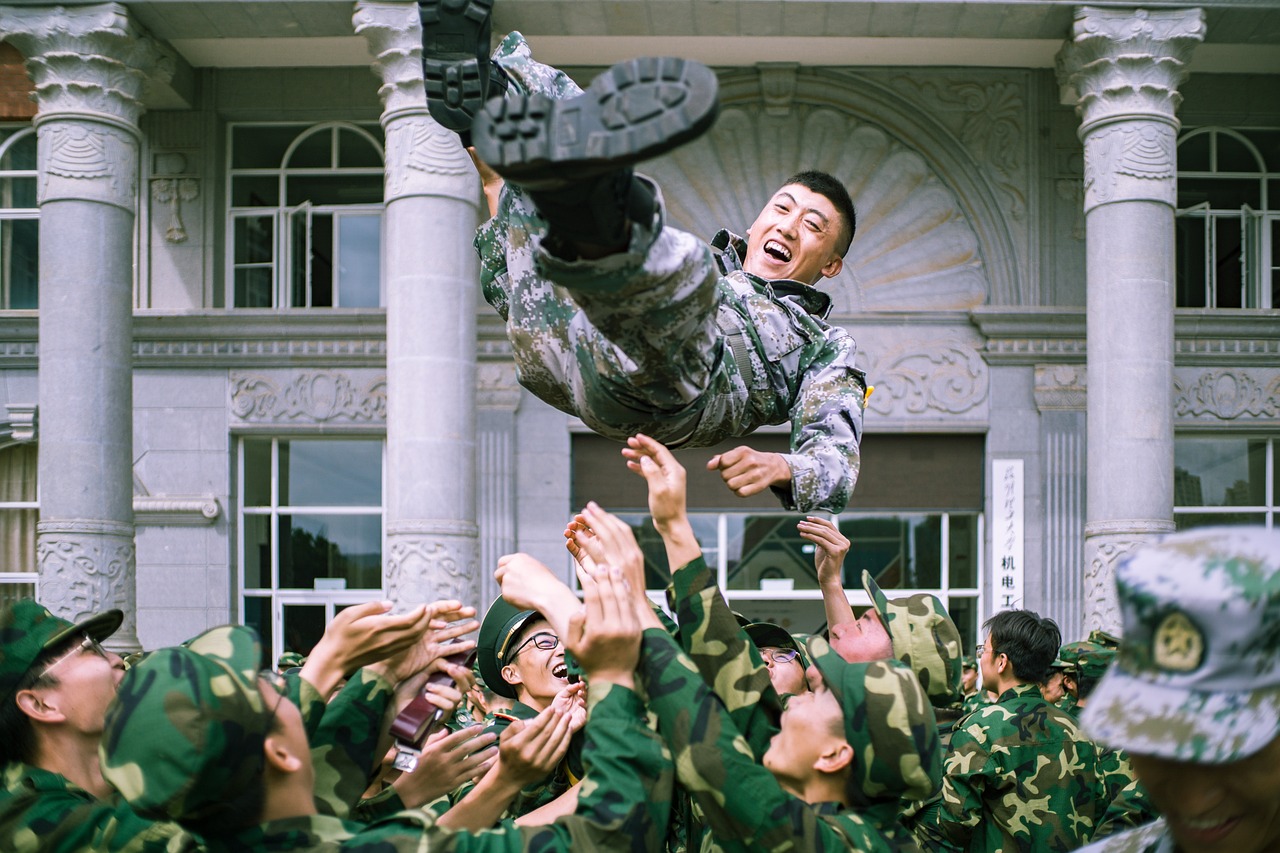
Long-term Strategic Implications
The integration of artificial intelligence (AI) into military strategy is not just a fleeting trend; it represents a seismic shift in how nations approach defense and warfare. As we look to the future, the long-term implications of AI in military operations are profound and multifaceted. One major area of impact is the potential reshaping of global power dynamics. Countries that effectively harness AI technologies can gain a significant edge over their adversaries, leading to a new kind of arms race focused on technological superiority rather than sheer numbers of personnel or traditional weaponry.
Moreover, the influence of AI on defense budgets cannot be overstated. As militaries begin to allocate resources towards the development and integration of AI systems, we may see a reallocation of funds that traditionally supported conventional forces. This shift could lead to a decrease in manpower and an increase in investments in advanced technologies, such as autonomous systems and cyber capabilities. The result? A military landscape where technology plays a central role in strategy, potentially reducing the need for large standing armies and changing the nature of military engagements.
Another significant consideration is how AI will redefine the nature of warfare itself. With AI's capabilities in data analysis and predictive modeling, military operations could become more precise and efficient. For instance, AI can facilitate real-time decision-making in complex environments, allowing for rapid responses to threats. This shift could lead to what some analysts refer to as "surgical warfare," where conflicts are resolved with pinpoint accuracy rather than widespread destruction. However, this raises questions about the ethical implications of such precision and the potential for collateral damage, even in highly targeted operations.
Furthermore, as AI becomes more integrated into military strategy, the concept of warfare may evolve to include cyber warfare as a primary domain. The ability to disrupt an enemy's command and control systems or to manipulate information flows could become as crucial as traditional ground or air engagements. This necessitates a new approach to training and strategy, emphasizing not just physical combat but also cyber capabilities and information warfare.
In conclusion, the long-term strategic implications of AI in military operations are vast and complex. Nations must navigate the challenges of ethical considerations, resource allocation, and evolving warfare tactics while embracing the opportunities that AI presents. As we move deeper into the 21st century, the question remains: how will countries balance the advantages of AI with the potential risks it poses to global stability?
- What are the primary benefits of AI in military strategy?
AI enhances decision-making, improves situational awareness, and optimizes resource allocation, ultimately leading to more effective military operations. - How does AI impact global power dynamics?
Nations that effectively utilize AI technologies may gain a strategic advantage, potentially reshaping global military hierarchies. - What ethical concerns arise from using AI in military operations?
Ethical dilemmas include the use of autonomous weapons and the potential for unintended consequences during combat. - Will AI replace human soldiers in the future?
While AI will augment military capabilities, the complete replacement of human soldiers is unlikely due to the complexities of combat and ethical considerations.
Frequently Asked Questions
-
What is the role of AI in military strategic planning?
AI plays a crucial role in military strategic planning by enhancing decision-making processes, improving situational awareness, and optimizing resource allocation. It allows military leaders to develop more effective strategies in complex environments, ultimately leading to better outcomes in operations.
-
How does AI improve data analysis in military operations?
AI significantly improves data analysis by processing vast amounts of information and creating predictive models. This capability enables military strategists to anticipate threats, assess risks, and make informed decisions based on real-time data and historical patterns, which is essential for effective planning.
-
What are the benefits of machine learning in military contexts?
Machine learning algorithms are invaluable in military contexts as they help identify trends and provide actionable insights from intelligence data. This enhances the accuracy and speed of military strategic planning, allowing for quicker and more informed responses to emerging threats.
-
How does natural language processing enhance military intelligence?
Natural language processing (NLP) enhances military intelligence by extracting meaningful information from unstructured data sources, such as reports and communications. This improves the quality of intelligence analysis, enabling military planners to make better-informed decisions.
-
What challenges does AI face in military planning?
Despite its advantages, AI integration in military planning faces challenges, including ethical concerns regarding autonomous weapons, data security issues, and the necessity for robust training programs. Addressing these challenges is vital for the effective and responsible use of AI in military contexts.
-
What are the ethical implications of using AI in military operations?
The deployment of AI in military operations raises significant ethical dilemmas, particularly concerning autonomous weapons and the potential for unintended consequences in combat situations. These concerns necessitate careful consideration and regulation to ensure responsible use.
-
How does AI impact data security in military applications?
Data security is paramount in military applications of AI, as vulnerabilities can be exploited by adversaries. Ensuring the security and privacy of sensitive military data is crucial for maintaining strategic advantages and operational integrity.
-
What does the future hold for AI in military strategy?
The future of AI in military strategy looks promising, with potential advancements in warfare tactics, logistics, and overall defense capabilities. As AI technology evolves, it will likely lead to unprecedented changes in how military operations are conducted.
-
How will AI integrate with other emerging technologies in defense?
AI's integration with emerging technologies, such as drones and robotics, will further enhance military capabilities. This combination will create a more agile and responsive defense force, capable of addressing modern challenges more effectively.
-
What are the long-term implications of AI on global military dynamics?
The long-term implications of AI on military strategy could reshape global power dynamics, influence defense budgets, and redefine the nature of warfare in the 21st century. As AI becomes more prevalent, its impact on international relations and defense strategies will be significant.












